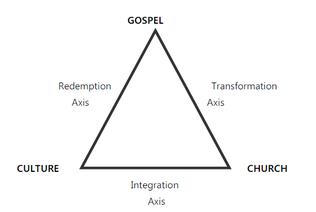The Barna Group studied younger outsiders (those not affiliated with Christianity) between the ages of 16- and 29-years-old, and discovered 49% have a bad impression of evangelical Christians. Just 3% of the young people in this study indicated a positive impression. The Barna study suggests six broad reasons young outsiders have a negative image of modern-day Christianity:
a. Christians seem to be hypocritical: Participants stated it appears that most “Christians” say one thing, and yet, do another. Participants appear to believe most “Christians” have morally superior and judgmental attitudes.
b. Christians seem to care more about the number of people in their churches than about the people themselves: Participants felt more like “targets” or “prospects” than “lost souls”.
c. Christians seem to hate homosexuals: Participants say Christians are bigoted, that they show disdain for gays and lesbians, and that they are fixated on “curing” homosexuals. Furthermore, most participants stated that they believe Christians push for political “solutions” that deny homosexuals equal rights.
d. Christians appear naïve and sheltered: The majority of participants indicated they think of Christians as old-fashioned, boring and out of touch with reality. Most indicated that they think Christians offer trite, simplistic non-solutions to complex, real world problems.
e. Christians seem too political: The study results suggest that participants think Christians are overly motivated by politically conservative agendas.
f. Christians are judgmental: Two common perceptions among the people in this demographic include the belief that Christians are quick to judge others and that Christians do not really love people as they say they do. (David Kinnaman and Gabe Lyons, UnChristian: What a New Generation Really Thinks About Christianity. . . And Why It Matters, Grand Rapids, MI: BakerBooks, 2008, pgs. 25,29-30)
In the following passage, we examine four principles that address many of the above concerns. Dan struck Leshem with the edge of sword so they could occupy the land (Josh. 19:47). As we wield the two-edged sword of God’s word, He brings to light our thoughts and motives. Increasing areas of our life can then be transformed by God’s grace as we bring those issues to Him in prayer (Heb. 4:12-16).
1. Young people value transparency and admission of sin rather than judgment (addresses “a” & “f” above).
The Lord instructed Joshua to provide cities of refuge to protect those who unintentionally kill someone from avengers. Provision was also made for the stranger or immigrant (Josh. 20:1-9).
2. Young people value earthly concerns including justice for
minorities and immigrants (addresses “c” & “d” above).
Levites, full-time workers who managed the tabernacle and sacrificial system, were given 48 cities along with pasture lands (Josh. 21:41). Israel received land from the Lord to possess as promised to their fathers. He gave them rest and all their enemies into their hand. The Lord kept all His promises (Josh. 21:43-45).
3. Young people value seeing God’s power and compassion for people first-hand to reinforce the truth of His word (addresses “b” above).
The tribes west of the Jordan misjudged the motives of the 2 ½ tribes east of the river concerning an altar the latter built. They communicated to the western tribes the altar, actually monument, was to remind their sons of the Lord, not to offer sacrifices on it. They built the monument out of concern so their sons would fear the Lord. A potential war between the two sides was eliminated. Reuben and God called the altar a witness that the Lord is God (Josh. 22:10,21-34).
4. Young people value adults who share their motives, eliminate political stumbling blocks and resolve conflicts so God is put on display (addresses “e” above).
These four actions valued by young people influence whether they will follow God. As a foundation for everything, we should be careful to love God, walk in His ways and serve Him with all our heart and soul (Josh. 22:5).
Which of these four actions will you ask God to apply to your life so you can reach young people?







